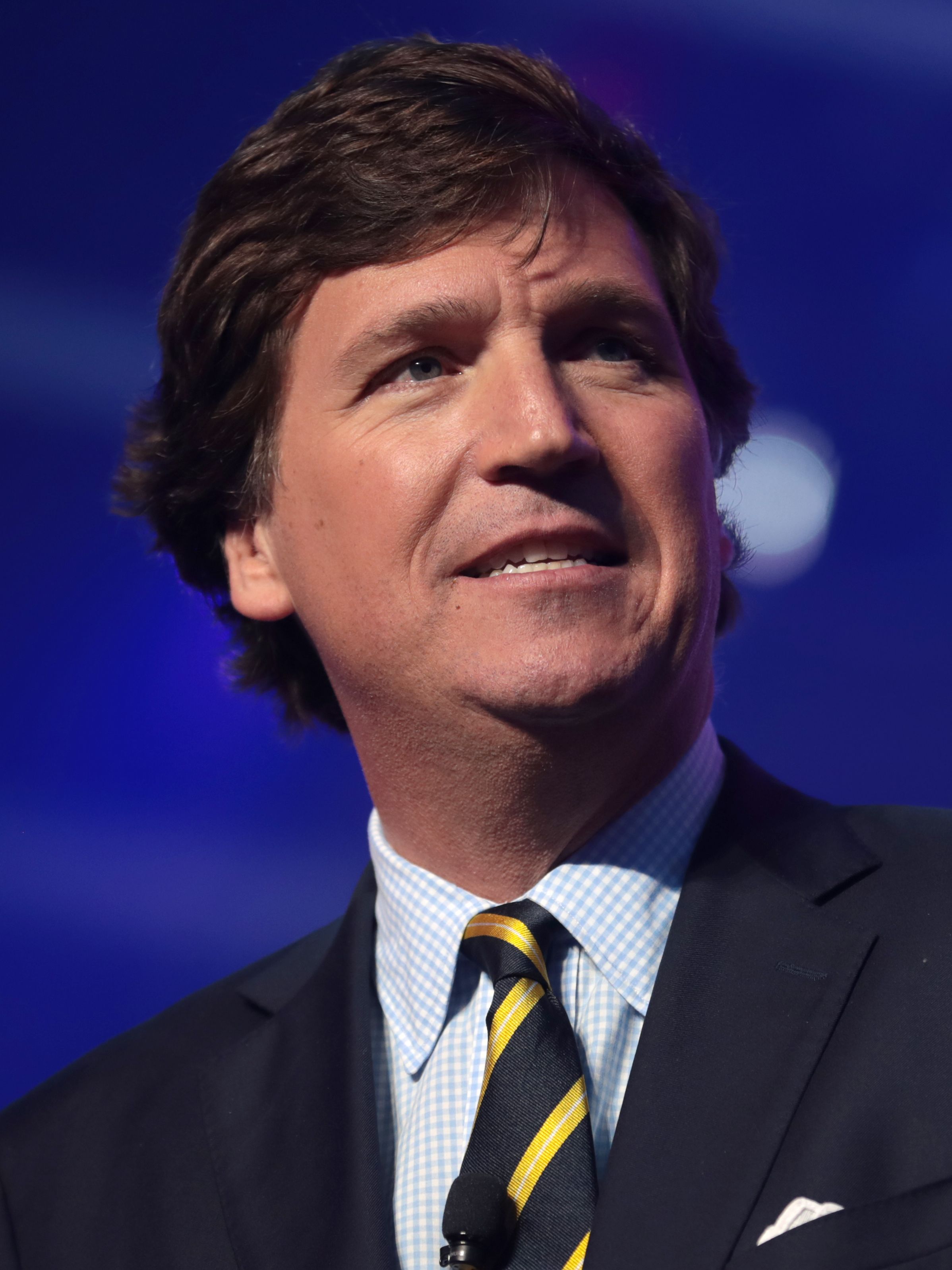By Jen Mercieca
Fox News fired Tucker Carlson. The move was shocking because Carlson’s show was the biggest ratings draw for the network, and public opinion polls found that he was the most trusted person in conservative media—more trusted than even Fox itself. Because of his prominent place on Fox, Tucker wielded a large amount of power in the Republican Party, acting as an inquisitor and a kingmaker.
Though we don’t know why exactly, the central node of the conservative media ecosystem was abruptly removed from his position of power. This might be bad news for Carlson, but it is good news for American democracy. Like Jon Stewart famously said to Tucker in 2004 on CNN’s Crossfire: Tucker’s way of doing television was “hurting America.”
Tucker Carlson’s show was unequivocally bad for democracy. Tucker has treated his audience with contempt, regularly attacking their minds by convincing them that politics is war and the enemy cheats, and the whole world is out to get them. Every night on his show, he told his audience that they should be afraid and trust no one but him. He told his audience who to fear, who to loathe, and who to attack. His show made America less unified, less powerful, and, ultimately, less safe.
Tucker’s show was bad for truth. In a 2020 defamation case, Fox’s lawyers argued, and a judge agreed, that when Tucker said, “Remember the facts of the story. These are undisputed,” his audience would understand that Tucker wasn’t really giving “undisputed facts” at all. U.S. District Judge Mary Kay Vyskocil ruled “that given Mr. Carlson's reputation, any reasonable viewer arrive[s] with an appropriate amount of skepticism about the statement he makes.” Fox News lawyers argued that what Tucker called “undisputed facts” on his show were actually understood by his audience as “exaggeration and non-literal commentary.”
But Tucker’s viewers did believe him. According to a 2022 YouGov survey, his viewers trusted him more than they trusted any other source of news or information—65% of Republican respondents said that they trusted Tucker, while only 53% of Republicans said that they trusted Fox News. Tucker abused his audience’s trust, violating their minds repeatedly with misinformation, disinformation, and narratives laundered from the extremist fringe. He presented an unreal “reality” to his viewers each night, designed to scare them. The man who shot Ralph Yarl—the young African American teenager who mistakenly rang the wrong doorbell when trying to pick up his younger siblings from a playdate—watched Fox News “nonstop,” addling his mind, according to his grandson.
Tucker’s show was bad for polarization. Tucker was the most trusted source of news and information for Republicans, but he was the least trusted source for Democrats—only 17% of Democrats agreed that they could trust Tucker (compared to 19% of Democrats who trust Fox News in general). It turns out that nighttime cable news programming has grown increasingly partisan since the 2016 election, which was when Tucker’s show began. Political communication scholars have found that partisan “selective exposure” to outraged-based news and information like that presented on Tucker’s show can increase partisan antipathy, an effect that was even more prominent for Republicans than for Democrats. Republicans like being outraged by outrage media, and Tucker fed them a heaping plate of outrage each night. Outrage activates our innate “disgust” response, which tells us that whatever is being positioned as the object of outrage is beneath contempt, gross, yucky, and absolutely something to avoid, if not “purify,” “cleanse,” or “purge” from society. Of course, historically, “disgust” rhetoric has been related to genocide.
Tucker’s show was bad for social and political trust. Every evening, his program was one long conspiracy theory—his viewers regularly heard him say, “No one will tell you this”; “Why won’t they let us ask questions”; “They don’t want you to know this”; And, etc.—which positioned him and his audience as powerful truth-tellers against an alleged worldwide cabal of assorted evildoers and meanies. Tucker Carlson became the avatar for what one scholar called “rightwing conspiracy theories as a manifestation of mass false consciousness in service of a political-economic system that serves upper-class interests.” Tucker regularly based his program on the white supremacist “Great Replacement” conspiracy theory that argues that diversity is actually “white genocide” and immigration is a Democratic Party plot to win elections by flooding the nation with friendly voters. Tucker also regularly made “false claims about the 2020 election, COVID vaccines, and the Jan. 6 Capitol insurrection, as well as smears against gay and transgender people and Russian propaganda about fictitious Ukrainian biolabs.” Tucker used conspiracy so frequently that his conspiracy theories had conspiracy theories.
Tucker’s show was bad for the people who watched it. Tucker’s show was bad for the people who didn’t watch it. Tucker’s show was only good for conspiracy theorists, white supremacists, and Russian propagandists; it wasn’t good for American democracy. Tucker Carlson communicated irresponsibly, and he found out.




